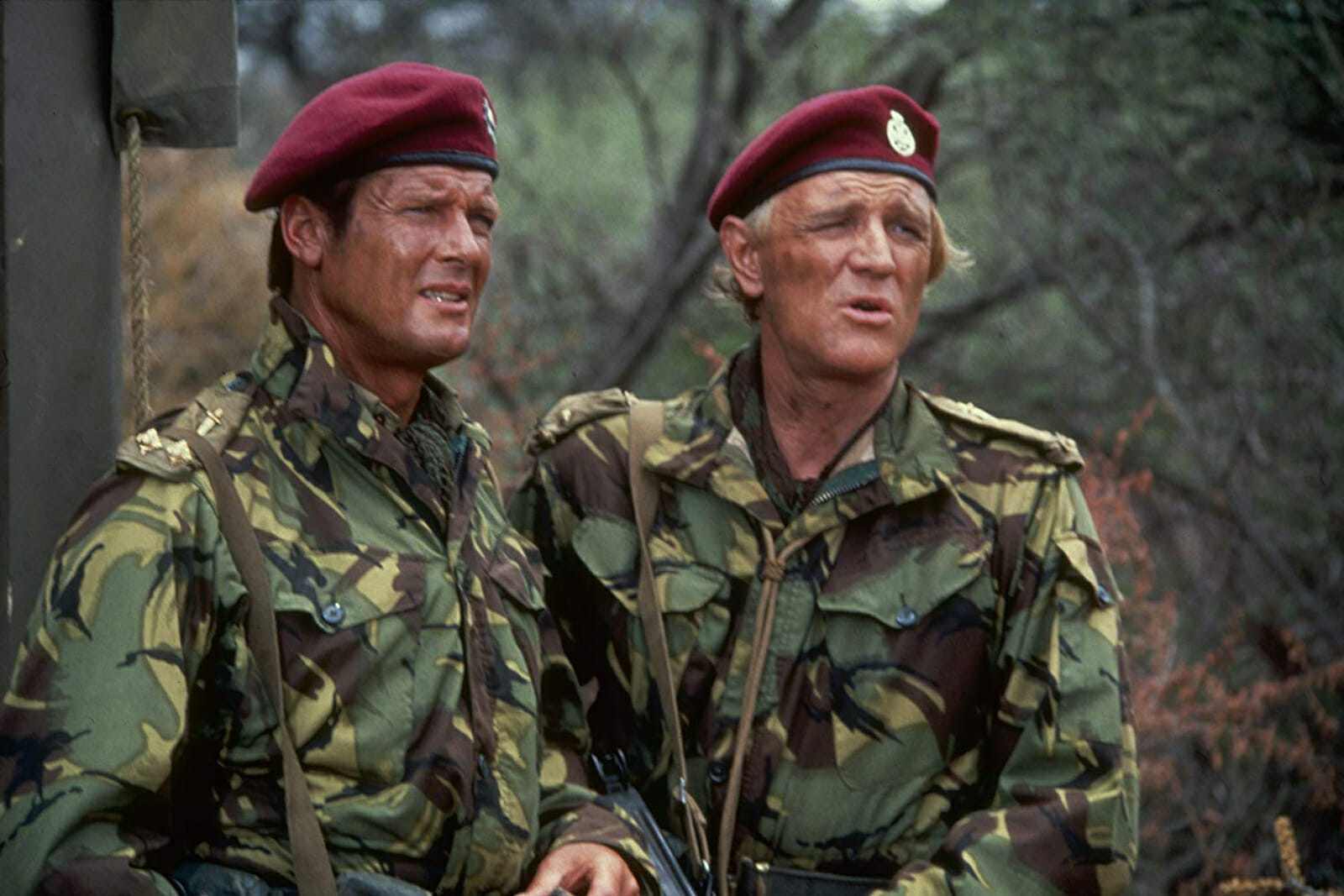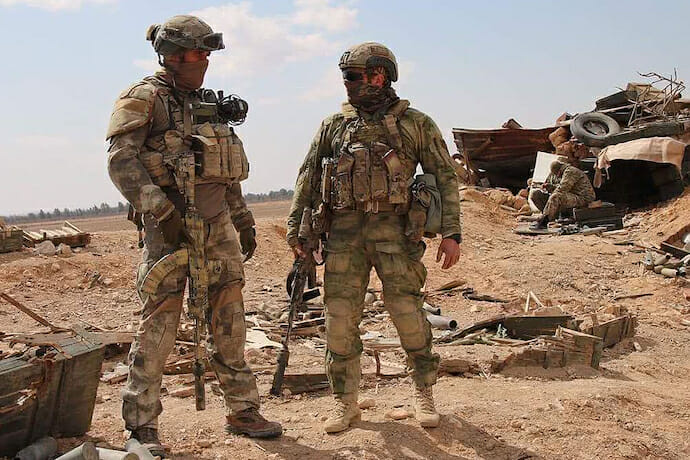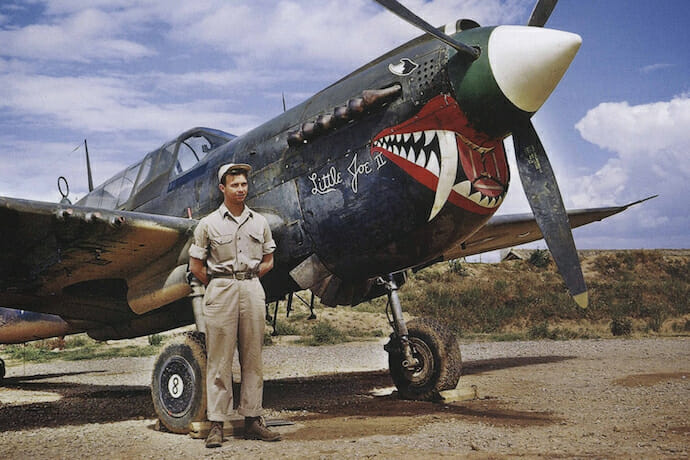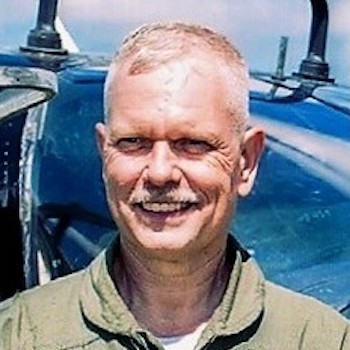
The Matter of Mercenaries
In the Chinese cities of Nanjing, Kunming, Guilin, Zhijiang and Chongqin, there are museums and other memorials dedicated to Americans who trained and fought alongside Chinese “United Front” forces turning back Japanese aggression. These Americans were not, however, part of the armed forces of the United States and their assistance began before the Japanese attack on Pearl Harbor. They were paid, in gold, by a joint-venture Chinese-American private company. In short, they were mercenaries. But aren’t mercenaries supposed to be evil? Isn’t there an international norm against mercenaries? Isn’t being a mercenary a war crime? Then why does the People’s Republic of China have official museums to these men and memorialize the Chinese who fought alongside of them? Before answering these questions, we might think of other mercenaries in American history, those Americans who fought for countries not their own, and those who came to the United States in its hours of need. We might find that answers are not as simple as might first appear.
For the purposes of this discussion, I am disregarding the definition of “mercenary” as it exists in various international conventions. Even the United Nations Working Group on Mercenaries regards that definition as useless, or nearly so. Instead, I will use the definition from the Cambridge Dictionary which is, “a soldier who fights for a foreign country or group for pay.”
This definition seems like something most people can agree to and is more suited to the issues we face.
One of the causes cited in the United States Declaration of Independence that justified separation was the British use of foreign mercenaries against the peoples of America. Therefore, one might conclude that from its inception, the United States has had a firm position against mercenaries. That, too, is not so simple. During their celebrated mission to Paris, one of Franklin’s and Adams’ tasks was to recruit foreign officers for the American cause. They were so successful at this that Washington asked Congress to stop because he had nothing for them to do! These mercenary officers included von Steuben, the U.S. Army’s first Inspector General; Pulaski, credited with being the founder of the U.S. Cavalry; and Kosciusko, acknowledged as the founder of American military engineers. Some remained in the United States after independence. Others, like Lafayette, returned home to lead their own people in the cause of liberty.

Near the end of the War of 1812, the French pirate, Jean Lafitte was courted by both the British and the United States. He offered his service and that of his men and ships to the United States for the defense of New Orleans in return for pardons. His terms were accepted, and he and his men were cited for bravery and gallantry in the defense of that city.
During the Civil War, the Union did not recruit mercenaries. Not officially. In practice, U.S diplomats in Europe publicized favorable opportunities, including substantial bonuses, for people to emigrate to the United States for the purpose of enlisting in the Army. Recruiting sergeants speaking various European languages were at the ports of arrival and volunteers went from arrival to enlistment in a matter of hours. Companies, battalions, and at least one regiment conducted operations in the language of these new arrivals. In some cases, mercenary recruitment was more direct. At the request of the Secretary of State, the Catholic Archbishop of New York traveled to Rome to recruit combat-experienced officers from Papal forces. Among those recruited were Myles Keogh, who, with at least four other Irishmen serving as officers of the Papal guard, were given commissions as captains in the U.S. Army. Keogh fought at Antietam, Fredericksburg, Brandy Station, and Gettysburg, ending the war as a Lieutenant Colonel. He remained with the U.S. Army after the war as a captain in the 7th Cavalry, falling at the Little Big Horn with the rest of his troops.
As the United States became a global power, the situation reversed, and Americans went to serve under foreign governments for the defense of freedom or for a spirit of adventure. A civilian scout for the U.S. Army, Frederick Russell Burnham, became Chief of Scouts for the British in southern Africa and taught scout-craft to the British General Robert Baden-Powell, the founder of the Boy Scouts. In WWI, Americans went to France as ambulance drivers and, more famously, formed the Lafayette squadron of the French Air Force and became the first American “aces.” Some American pilots stayed on after the war, to fight in new wars for freedom in Eastern Europe. Notable among these was a squadron of American pilots named for the Polish mercenary who offered his sword and talents to the American Revolution. The Kosciusko Squadron has been part of the Polish Air Forces from then to this day.
On the dark side, mercenary units and individual mercenaries have been known for their association with war crimes and violations of human rights. This is particularly true for Africa in the last half of the 20th century. In African countries emerging from colonialism, struggles for independence or to maintain control in the face of unspeakable violence were fought without honor, chivalry, or humanity. French-speaking mercenaries, in particular, fought terror with terror and often seemed unaccountable to any authority or law. Technically competent, but uncontrolled and without discipline, they earned the name Les Affreux (The Terrible Ones.) Regular military forces of new African states were often worse. In the wars in the Congo, it was the Congolese National Army that was guilty of the most horrible rattisage, or revenge raids. Where they were present, Western or South African mercenaries such as Michael Hoare’s 5th Commando stepped between government forces and civilians. Although not guilty of rattisage, Hoare’s forces weren’t innocent, either. They too, participated in looting, coups, and tactics intended for psychological intimidation but which were unacceptable and violated the laws of war. These acts were easily exploited by communist propagandists, alienating Western support for their activities.
All-African mercenary groups also existed in the late 20th century and continue to operate today. Little more than armed thugs or brigands, they are used by despotic governments for raids on rebellious populations or in deniable raids on neighboring states. That is, when these groups are not attacking neighboring tribes and villages for their own gain or vendetta.

So, over the past two hundred years, mercenaries have been a force both for good and for evil. They have been critical in the fight for freedom and used as a tool to suppress freedom and human dignity. How should we approach this two-edged sword? Do we attempt to eliminate all forms or mercenary activity to manage the threat to peace, stability, and freedom? If we do…even if we could (and the success of that seems unlikely) what about circumstances where an emerging democracy needs external help to train its security forces or to defend its people from attack? Will developed states always be willing to spend their treasure and put their soldiers at risk? The track record says no.
The Department of Defense Law of War Manual states that being a mercenary is not a crime in international law. Nonetheless, I believe that international law and history point out how to approach the mercenary question. The existing conventions that make up the laws and customs of war clearly define what constitutes a lawful belligerent — someone who is, under the law of war, privileged to participate in combat. These include:
- To be commanded by persons responsible for their subordinates, with an internal disciplinary system enforcing compliance with the laws of armed conflict.
- To wear a uniform or have a fixed distinctive emblem distinguishing them from civilians.
- To carry arms openly.
- To conduct their operations in accordance with the laws and customs of war.
In each of the previous examples where mercenaries contributed to fighting a just war, their use incorporated all of these elements. In each case where the use of mercenaries undermined the rule of law and human rights, one or more of these elements were absent. This would include activities of Russian sponsored quasi-mercenary groups in Africa, Syria, and Ukraine today.
In the opinion of the U.S. government, current treaty provisions that attempt to repress mercenary activity are themselves inconsistent with fundamental principles of the law of war. In the end, the motivation, country of nationality, compensation, etc., of persons fighting in any armed conflict is really irrelevant. What matters is how these individuals fight, that their actions fulfill the jus in bello principles that are the foundations for the laws and customs of war. What matters is a government’s ability to control the violence used on its behalf and to hold accountable those authorized by that State to use violence under international law.
The real question is how to compel states to live up to their responsibilities.
Oh, and the mercenary group that worked with the Chinese to free their people from the Japanese? A plaque in the Kunming museum says of them, “Their resounding name and their extraordinary performance are like a memorial that would never fade away existing on the minds of Sino-U.S. people who treasure peace.” These men, memorialized and respected in China even to this day, were hired by the Central Aircraft Manufacturing Company of China. They were known as the American Volunteer Group – or better known as The Flying Tigers.

